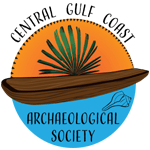Thursday, January 17, 2019
The Rocky Road from Tampa to Chicasa: Hernando de Soto’s Tribulations in the Interior Southeast
The beginnings of the journey of the members of the Hernando de Soto expedition were fairly auspicious. They encountered sizable and prosperous chiefdoms ranging from Florida through Georgia and the Carolinas, and by virtue of size and military technology were able to fend off hostilities from Native Americans. Their fortunes soured, however, in 1540 and 1541 as major conflicts at Mabila (Alabama) and Chicasa (Mississippi) left scores of Spaniards dead and wounded, as well as major losses of pigs, horses, and equipment.
Recent investigations at the Stark Farm site in eastern Mississippi have yielded a large number of likely sixteenth-century Spanish metal artifacts (e.g., adzes, axes, horseshoes) that seem to be related to the Soto encounter at Chicasa. This presentation considers the possibility of whether the Stark Farm is actually Chicasa, as well as alternative hypotheses to account for the presence of European material at this location.
Charles Cobb is Curator and Lockwood Professor of Historical Archaeology at the Florida Museum of Natural History, University of Florida. He specializes in the archaeology and history of the southeastern United States, and has a particular interest in Native American engagements with European colonialism. He has been involved in sustained research on Indian towns on the Carolina frontier. In a collaborative project with the Chickasaw Nation, Cobb is exploring the complex interactions between the Chickasaw, English and French in colonial era Mississippi. With National Endowment for the Humanities funding, he also is leading a team in the development of an online database on the archaeology of Franciscan missions.
This program is sponsored by the Central Gulf Coast Archaeological Society, and the Alliance for Weedon Island Archaeological Research and Education.


